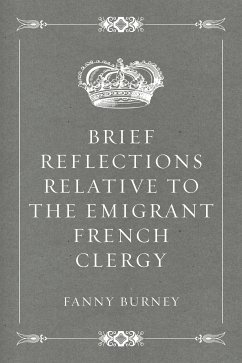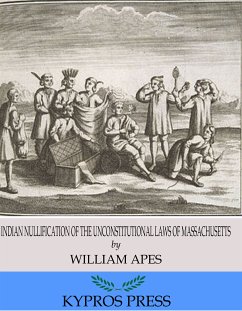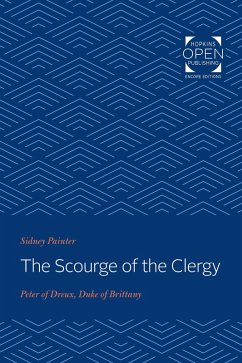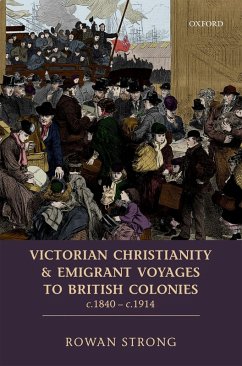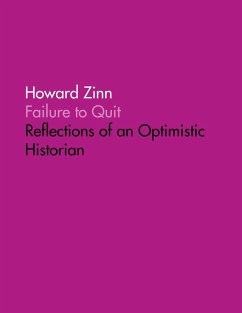
Brief Reflections relative to the Emigrant French Clergy (eBook, ePUB)

PAYBACK Punkte
0 °P sammeln!
In "Brief Reflections relative to the Emigrant French Clergy," Fanny Burney presents a poignant examination of the plight faced by the French clergy during the tumultuous period of the French Revolution. Written in a reflective and incisive prose style, the work captures the emotional and sociopolitical upheaval the émigrés encountered. Burney's keen observations also delve into the broader implications of exile, religious identity, and national loyalty, rendering the text a vital document within the context of late 18th-century literary and historical discourse. Fanny Burney, an acclaimed n...
In "Brief Reflections relative to the Emigrant French Clergy," Fanny Burney presents a poignant examination of the plight faced by the French clergy during the tumultuous period of the French Revolution. Written in a reflective and incisive prose style, the work captures the emotional and sociopolitical upheaval the émigrés encountered. Burney's keen observations also delve into the broader implications of exile, religious identity, and national loyalty, rendering the text a vital document within the context of late 18th-century literary and historical discourse. Fanny Burney, an acclaimed novelist and playwright, was profoundly influenced by her own experiences and those of her contemporaries during this era of radical change. Known for her insightful characterizations and societal critiques, Burney's interaction with the French clergy's tragic circumstances reflects her commitment to social justice and human empathy. This work is informed by her own connections with expatriates, illuminating her sensitivity to their struggles and the moral dilemmas posed by displacement and cultural dislocation. "Brief Reflections relative to the Emigrant French Clergy" is an essential read for those interested in the intersections of literature, history, and theology. Burney's eloquence and depth encourage readers to grapple with the ethical complexities of exile while fostering a broader understanding of the French Revolution's impact on individuals and communities. This exploration not only enriches the reader's knowledge of the period but also resonates with contemporary discussions on migration and cultural identity.
Dieser Download kann aus rechtlichen Gründen nur mit Rechnungsadresse in A, B, BG, CY, CZ, D, DK, EW, E, FIN, F, GR, H, IRL, I, LT, L, LR, M, NL, PL, P, R, S, SLO, SK ausgeliefert werden.




